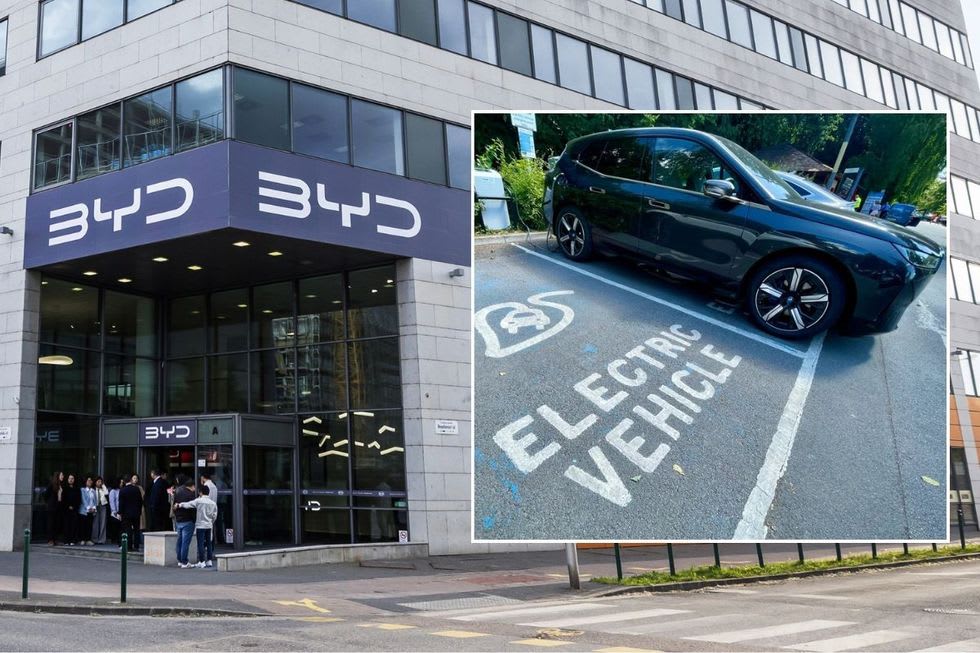Labour blocks Chinese car brands from EV grant amid Beijing's warning

China Warns UK Over Potential Exclusion of Electric Vehicles from Grant Scheme
Beijing has raised concerns over potential restrictions on Chinese electric vehicle (EV) manufacturers in a new £650 million grant scheme aimed at boosting EV adoption in the UK. The controversy comes as the Labour Party introduces a groundbreaking initiative to support drivers in transitioning to electric vehicles.
Overview of the Electric Car Grant
The Electric Car Grant (ECG) is designed to make electric vehicles more accessible by offering financial incentives. Drivers can save up to £3,750 on a new electric vehicle if it costs less than £37,000. This initiative aligns with the government's goal of increasing the number of electric vehicles on UK roads ahead of the 2030 ban on new petrol and diesel cars.
However, recent reports suggest that Chinese manufacturers may not be eligible for the grant. According to sources, the Department for Transport is considering excluding applications from Chinese automakers due to environmental concerns.
China’s Response to the Alleged Restrictions
A Chinese embassy spokesperson has issued a strong statement, emphasizing that China will "resolutely safeguard" its electric car industry. The spokesperson urged the UK to follow World Trade Organisation (WTO) rules and ensure an open, fair, and non-discriminatory environment for all businesses.
This warning highlights the growing tensions between the UK and China over trade policies and market access. The embassy also stressed that China has removed all market access restrictions for foreign investment in manufacturing, welcoming international carmakers, including British ones.
Environmental Standards and Eligibility Criteria
Transport Minister Lilian Greenwood confirmed during an interview on BBC Radio 4's Today programme that cars assembled in China would not qualify for the ECG. She explained that eligibility would be based on meeting minimum environmental standards.
"If you generate a lot of the electricity that powers your factory through coal power stations, then you are not going to be able to access this grant," Greenwood stated. This reflects the UK's commitment to promoting cleaner energy and reducing carbon emissions.
Under current regulations, 28% of vehicles sold this year must be fully electric, with penalties for manufacturers who fail to meet these targets. The ECG is expected to play a significant role in achieving these goals.
Impact on Chinese Automakers
The proposed restrictions could affect major Chinese manufacturers such as BYD and MG, which assemble their vehicles in China. Despite the concerns, BYD has expressed willingness to apply for the grant. Bono Ge, BYD's UK country manager, welcomed the initiative, stating that it could help drive awareness and uptake of electric vehicles in a key part of the market.
"We have informed the DfT of our intention to make an application for inclusion in the ECG scheme and look forward to being part of it," Ge said. This indicates that Chinese automakers remain optimistic about their prospects in the UK market.
Broader Implications
The situation raises questions about the balance between environmental goals and international trade relations. While the UK seeks to promote sustainable transportation, it must also navigate complex global economic dynamics. The WTO rules prohibit member states from giving preferential treatment to one country over another, adding another layer of complexity to the issue.
As the debate continues, both sides will need to find a way to address concerns while maintaining open trade channels. The outcome of this discussion could have far-reaching implications for the future of electric vehicles in the UK and beyond.

Posting Komentar untuk "Labour blocks Chinese car brands from EV grant amid Beijing's warning"